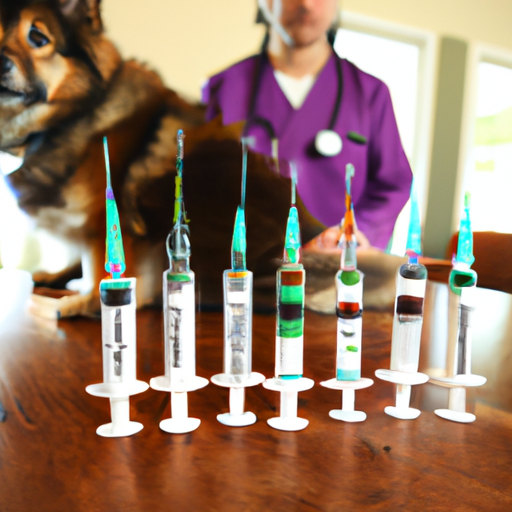As a caregiver, you want the best for your furry friend. Ensuring they get the right vaccines is an essential part of their health and well-being. This guide will provide you with the essential vaccines your dog needs throughout their life.
Understanding the Importance of Vaccines for Dogs
Like human vaccines, dog vaccines help to prepare your pet’s immune system to defend itself against infections or diseases. They contain antigens, which mimic disease-causing organisms but don’t actually cause illness. However, they do stimulate the immune system to recognize and fight these organisms if ever encountered in the future.
Core Vaccines Every Dog Should Receive
Veterinarians recommend certain “core” vaccines for every dog. These vaccines protect against diseases that are common, contagious, and serious.
- Canine Parvovirus (CPV): A highly contagious viral illness that affects dogs’ gastrointestinal tracts and can be fatal.
- Canine Distemper Virus (CDV): A contagious and serious disease that attacks the respiratory, gastrointestinal, and nervous systems of puppies and dogs.
- Canine Adenovirus Type 1 and 2 (CAV): Type 1 causes infectious canine hepatitis, a potentially fatal disease affecting the liver. Type 2 is a part of the kennel cough complex and can lead to respiratory disease.
- Rabies: A fatal viral polioencephalitis that affects the gray matter of the dog’s brain and its central nervous system.
Your vet may recommend additional non-core vaccines based on the risk factors of your dog, such as lifestyle, age, and geographical location.
Vaccination Schedule for Dogs
Regular vaccination is vital throughout your dog’s life. Here’s a general schedule for dog vaccinations:
| Age | Vaccination |
|---|---|
| 6-8 weeks | Distemper, parvovirus |
| 10-12 weeks | DHPP (vaccines for distemper, adenovirus [hepatitis], parainfluenza, and parvovirus) |
| 12-24 weeks | Rabies |
| 14-16 weeks | DHPP |
| 12-16 months | Rabies, DHPP |
| Every 1-2 years | DHPP |
| Every 1-3 years | Rabies |
Managing Side Effects and Considerations
Remember, like any medication, vaccines can cause side effects. Most are mild and resolve within a day or two. Common side effects include:
- Fever
- Sluggishness
- Loss of appetite
- Facial or paw swelling and/or hives
- Vomiting
If your dog experiences any serious reactions, contact your vet immediately.
Frequently Asked Questions
Q: Can vaccines make my dog sick?
A: Vaccines stimulate the immune system, which can sometimes make a dog seem “off” for a day or two. Serious illness is extremely rare.
Q: Are there any dogs that shouldn’t receive vaccines?
A: Dogs with serious chronic illnesses, dogs undergoing chemotherapy, or dogs that are pregnant may need to have their vaccinations postponed.
Q: How often does my dog need a rabies vaccine?
A: After the initial vaccine, boosters are given every one to three years, depending on local laws and the type of vaccine used.
Q: Are there alternatives to vaccinations?
A: There isn’t an alternative to vaccinations, but the frequency of vaccinations may differ based on your dog’s health and lifestyle.
Remember, a well-vaccinated dog is a healthier and happier companion. Protect them, and they’ll thank you with countless tail wags and loving licks.



